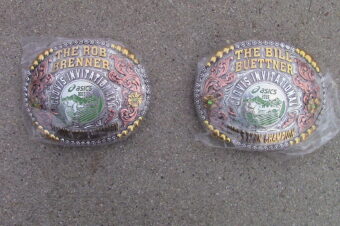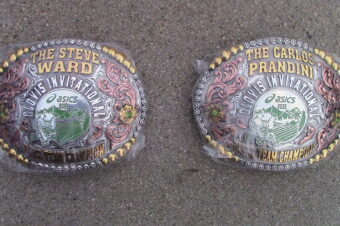


How do you find, and maintain, that perfect competitive balance where everything just feels easy?
Preseason for spring sports is finishing up; league play is here. Teams are getting more comfortable with each other, players are finding their role on the team and pressure to perform consistently well is growing.
This pressure can be a good thing “” if pre-season is going well and confidence is strong. If pre-season has been rocky and inconsistent, the pressure can be problematic. Working on consistency can be one of the trickiest parts of being an athlete. Some days are excellent: you’re technically sound, physically strong and everything feels easy. Then the next day, the “magic” is gone. What happened? Where did it go?
First, let’s look at what the “magic” is. Simply stated, it’s the the right balance of skill, stress and control. Let’s break it down.
>> SKILL “” Most athletes spend at least 90 percent of their time developing their sport-specific skills. This is important, because without solid physical skills, stress and control don’t matter much. Coaches often are are quite good at teaching this part of the sport and high school-age athletes are technically better than they’ve ever been.
>> STRESS “” Sports tend to be quite stressful, extremely stressful for some. Stressful situations force us to focus and engage, which is good. But to perform well, stress needs to be managed. I often talk to my athletes about the “magic combination” of having an energized, ready-for-battle-body (below the shoulders) and a calm, cool and collected brain (above the shoulders). While each sport requires a slightly different ratio of ideal stress (think golf vs. football) each athlete requires his or her own unique magic combination.
>> CONTROL “” The type of stress we experience just before competition (pre-performance stress) results in feeling jittery, sweaty. One’s thinking speeds up and for some, a nauseous stomach arrives. These are all symptoms of adrenaline surging through our body. Channeled properly, adrenaline is like rocket fuel for our muscles. But if left unchecked, surging adrenaline can destroy our performance. Proactively controlling your stress response is key.
So how do you achieve your personal magic combination?
Regarding Skill: Again, most athletes spend most of their time on this. The question is, do you spend enough time practicing at the same intensity level that you use in a game? Most athletes don’t. This solution is simple, dial up the intensity this week in practice. If you normally practice at a Level 6 intensity, push yourself to practice at a Level 8. Play faster, more aggressively, and set tough goals for yourself. Practice getting more comfortable being uncomfortable.
Regarding Stress: Your ideal stress level should allow for slow thinking, a strong sense of confidence and feeling in control of your body. First, you need to assess your personal ideal levels of stress, for above and below the shoulders. If you’re a golfer, or in the batters box (baseball and softball), your ideal body stress level will still be on the low side (3-5). If you play lacrosse or volleyball, you will need a higher level of body stress (7-9) to prepare you for contact and allow your body to generate explosive movement. Once you’ve assessed your ideal stress levels, it’s time to learn how to raise and lower (control!) your magic combination.
Regarding Control: How much time do you practice controlling your stress in preparation for competition? The good news is there are simple ways to make a big difference in controlling your stress levels.
HOW TO DECREASE STRESS
>> Be prepared. There is no better way to increase confidence than improving your preparation. Your goal should be to arrive at a competition feeling like you’ve earned the right to be confident.
>> Practice. simple thinking. In practice, challenge yourself to make thinking as concise as possible, then add intensity (speed, aggressiveness) and try and maintain your simple thinking.
>> Breathe. I cannot overstate the value that slow, deep belly breathing can have on your mental performance. It will help you to feel in control of your body which will give you a sense of control mentally.
HOW TO INCREASE STRESS
>> Warm-up with intensity. Challenge yourself to engage in warm-ups at the same intensity level as you will play in the game. Doing so helps make an easier transition into the game and allows you to get more comfortable playing at a high intensity level. Tip: If you can play the first five minutes of your game well, you will have a competitive advantage over those who are still trying to adjust to the game’s intensity.
>> Listen to pump-up music. It’s no secret that music can be a great pre-game motivator. If you need to get fired up (increase intensity) then music is a direct line to your nervous system.
>> Keep moving. The goal of raising stress is to increase intensity, but it’s still important to manage tension that may keep us from performing the technical parts of our sport (ex. good passes, fast digs, knowing our options). Jumping on your toes, arm swings, tensing and releasing your shoulders can be helpful to keep intensity high while keeping the steady stream of adrenaline moving throughout your body.
Consistency in performance is challenging, but not impossible. Your homework: Find your own personal “magic combination” that reflects your personal needs and the needs of your sport and position. Good luck out there!!









No comments so far.
Be first to leave comment below.